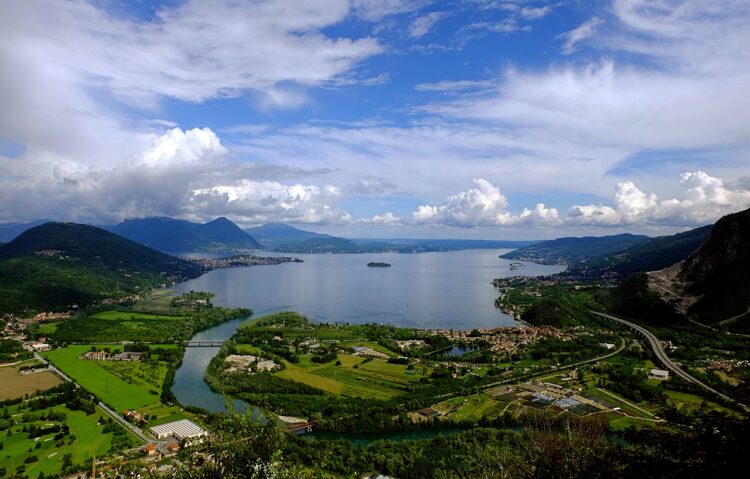Rhine-Alpine News
11.01.2024
Switzerland and Italy fund upgrade of key Rhine-Alpine section

Symbolic picture by Minree on Pixabay
The Italian infrastructure manager Rete Ferroviaria Italiana (RFI) has announced a 117 million euro contract, co-financed by Switzerland, to improve intermodality of the railway in northeastern Italy between Arona and Verbania, which runs along the southeastern side of Lake Maggiore. It wiill be renovated to accommodate freight trains with a 4-meter profile (P400).
The effort comprises lowering the ballast and rails in the Faraggiana and Stresa tunnels, according to numerous Italian media outlets, including Ossola News. The Arona-Verbania stretch is part of the TEN-T Rhine Alpine Corridor, which connects Genoa, Italy, and Rotterdam, the Netherlands. Once this project is done, intermodal trains will be able to travel freely from Basel to destinations in northern Italy via the Lötschberg-Simplon route.
RFI is also striving to connect Turin to the corridor, with Arona playing a vital role. The Italian infrastructure management has initiated a feasibility study to revive the Santhià-Arona railway, which would connect Turin to Switzerland and the remainder of the corridor due to increased rail freight demands having prompted the parties to consider restarting the line.
French Parliamentary Inquiry results in 28 Recommendations for Boosting Railfreight

Symbolic Picture by ShafinProtic on Pixabay
A French Parliamentary Commission of Inquiry issued a report on the country’s rail freight sector, making 28 recommendations to restore rail to fair competition with road transport.
The 207-page paper investigates the reasons for the reduction in rail’s modal share of freight transport over the last 50 years. Its findings were based on testimony from over 100 people under oath, including current and former politicians, rail and road freight industry executives, infrastructure managers, transportation authorities, and shippers.
A few examples of recommendations:
- Generalise and systematise the inclusion of a rail service study component in all strategic business projects, major logistics platforms or business parks of regional or metropolitan interest, particularly in projects eligible under the France 2030 plan.
- Encourage the harmonisation of best practice measures implemented by major French ports, particularly in the context of their prerogatives in terms of public domain, to develop rail infrastructure.
- Define a specific rail freight access scheme for each departement.
- Systematically integrate the needs of rail freight into plans for metropolitan regional express services.
The full paper can be accessed below.
Sources (in French):
